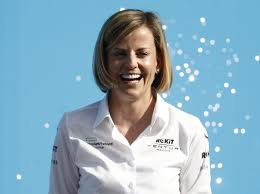
Introduction
Susie Wolff is not just a name in the world of motorsport; she is a symbol of progress and a trailblazer for women in racing. As a former racing driver and current team principal of the Venturi Formula E team, Wolff has made significant strides in promoting diversity in the traditionally male-dominated sport. Her journey connects with many aspirations for equality and representation, making her story relevant in today’s conversations about inclusivity in various fields, including sports.
Career Highlights
Wolff began her racing career in karting and quickly progressed through the ranks, participating in various championships. She made history in 2014 by becoming the first female driver in 22 years to take part in a Formula One weekend, representing the Williams team during practice sessions. Although she didn’t compete in a race event, her participation alone helped to challenge stereotypes about women in motorsport.
After leaving F1, Wolff shifted her focus to promoting female participation in racing. In 2016, she co-founded the ‘Dare to be Different’ initiative, aimed at inspiring and supporting young women in motorsports. This program has been pivotal in showcasing female talent and encouraging more inclusivity in the industry.
Recent Developments
In 2023, Wolff has continued to make waves as a leader in Formula E, where she is overseeing Venturi’s operations. Under her leadership, the team has achieved significant successes, proving that diversity can drive innovation and performance. Wolff’s insights into the changing dynamics of racing and her dedication to nurturing talent have been well-received, leading to increased interest in female drivers. Furthermore, her advocacy for women in sports is gaining traction, with more conversations about representation taking place across the motorsport world.
Conclusion
Susie Wolff’s journey from a young karting enthusiast to a prominent figure in motorsport illustrates the importance of diversity and representation in sports. As she continues to break barriers and challenge norms, her influence extends far beyond racing. The evolution of woman representation in motorsports is evident, but as Wolff herself indicates, it is just the beginning. Her efforts highlight how impactful one individual’s passion can be in generating change. For readers, Wolff’s story serves as a reminder that the road ahead should not be limited by gender, and with determination and support, transformations in any field are possible.



